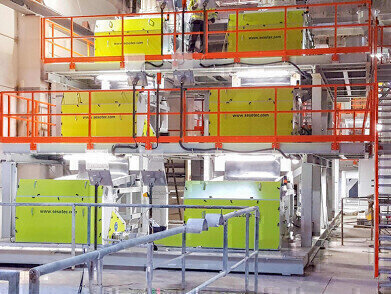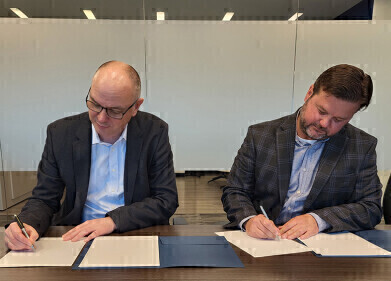Waste Management
How Reiling Glas recycling reintroduces valuable dark cullet into production
Jul 04 2024
The Reiling Group, a leading recycling specialist in Germany, excels in recycling glass, plastic (PET), wood, and photovoltaic modules. Their product range also includes foam glass gravel and Revitro (decorative glass). For over a century, Reiling has been committed to efficiently collecting and recycling valuable materials, significantly contributing to environmental and climate protection. The family-owned company leverages its expertise and cutting-edge recycling technologies to process various recyclables.
Operating at 13 locations in Germany and six across Europe, Reiling processes over 1 million tons of glass annually at its recycling sites in Germany, Denmark, and Poland. This high-quality recyclate can be reused in almost any melting application, creating added value.
The Challenge of Sorting Dark Glass Cullet
Container glass is a highly recyclable material that can be recycled indefinitely. Proper collection and subsequent processing in specialised glass sorting plants, like those run by Reiling, are crucial for its reuse. At Reiling, recycling processes are designed to remove impurities and sort by color. The company continuously optimises these processes to achieve a closed cycle with minimal material loss and high-quality secondary raw materials.
In 2015, Reiling established a recycling facility in Naestved, Denmark, for processing hollow and flat glass. The plant employs SPEKTRUM glass sorting systems from Sesotec, which reliably remove ceramics, stones, porcelain (CSP), and metals before sorting the glass cullet by color. This process produces clear, brown, and green glass of the highest quality, ready for new glass bottle production.
However, sorting dark cullet has been a significant challenge. Traditional optical detection systems in glass recycling rely on transmitted light. Dark cullet, due to its thickness and strong colouring, often appears opaque and is mistakenly classified as a contaminant, resulting in valuable material being lost alongside CSP impurities.
Breakthrough Sensor Technology for Dark Glass Detection
A significant advancement in material recovery was achieved with the development of a new sensor system for Sesotec sorting systems, enabling the detection of dark, opaque glass pieces. This technology uses additional special lighting and sensor technology (C-C sensor) alongside normal transmitted light. Dark cullet can now be distinguished from CSP reliably, allowing it to remain in the material flow instead of being discarded with CSP contaminants. This improvement keeps the particularly heavy and valuable dark cullet in the cycle, ready for use in new product production without needing glass drying.
Reiling has invested in the latest Sesotec technology, including SPEKTRUM glass sorting systems equipped with the special C-C sensor, to enhance glass recovery further. Reiling was among the first to use C-C sensor sorting in contaminated areas and has achieved significant success.
Optimised Glass Recovery with Minimal Losses
KRS Recycling Systems, a Sesotec partner, was tasked with expanding the Danish glass recycling plant, overseeing the entire process from consulting and planning to installation, commissioning, and support.
Reiling continually invests in advanced plant technology and optimises its recycling processes to retain as much material as possible in the cycle. "Thanks to the new Sesotec technology, more valuable, dark cullet remains in the material cycle. The proportion of glass recovered is significantly increased once again and can be used to add value in high-quality melting applications. A benefit for both profitability and the environment," says Benedikt Heitmann, Managing Director of Reiling Glas Recycling.
Overall, the new Sesotec C-C sensor technology represents a significant achievement for recycling companies, the circular economy, and the economy by enabling the reuse of dark cullet in new glass production.
Events
WEATHER • CLIMATE • WATER / EARTH OBSERVATIONS / GREEN ECONOMY
Oct 29 2024 St. Petersburg, Russia
Oct 30 2024 Hong Kong
Nov 05 2024 Toronto, Canada
Nov 06 2024 Ho Chi Minh City, Vietnam
Nov 12 2024 Valencia, Spain














